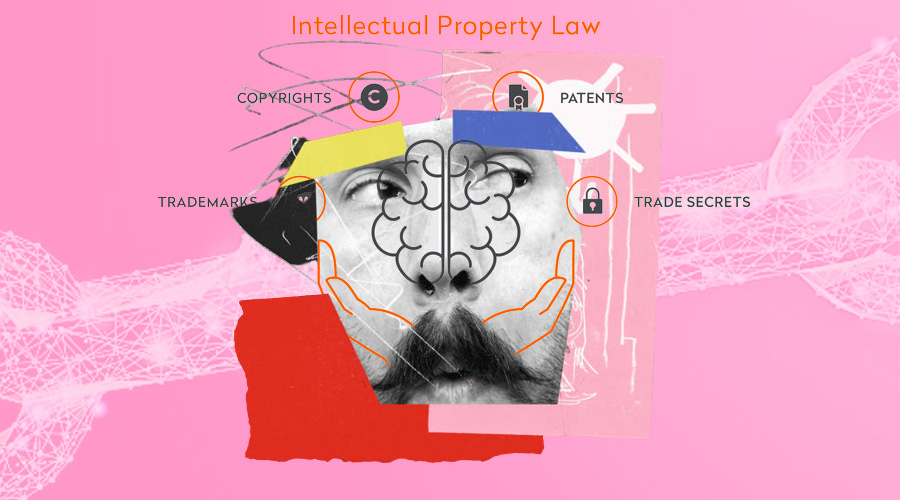 Revolutionizing intellectual property with blockchain technology. Unleashing its full potential
Revolutionizing intellectual property with blockchain technology. Unleashing its full potential
Blockchain, the groundbreaking technology behind cryptocurrencies, has emerged as a transformative force in various industries. One sector where its potential shines remarkably bright is Intellectual Property (IP) management. In this article, we delve into the fascinating world of blockchain’s applications in intellectual property, uncovering its myriad benefits and future possibilities. From transparency and enhanced security to smart contracts and global collaboration, blockchain offers various advantages that can revolutionize how we protect, manage, and monetize intellectual property. We explore the boundless opportunities at the intersection of blockchain and IP.
Understanding Blockchain Technology
Before we delve into the applications in intellectual property, it’s crucial to understand the basic workings of blockchain. Blockchain is a distributed ledger technology that records transactions across a network of computers known as nodes. Each transaction is stored in a block linked to the previous one, forming a chain of blocks, thus the term “blockchain.” The data on a blockchain is cryptographically secured, making it nearly impossible to alter or tamper with the information stored.
Advantages of Blockchain in Intellectual Property
1. Transparency and Immutability
Blockchain’s transparency and immutability can significantly benefit intellectual property management. For instance, in copyright protection, creators can timestamp their work on the blockchain, providing an indisputable record of their ownership and creation date. This can be invaluable in copyright infringement cases, where proving original authorship can be challenging.
2. Enhanced Security and Authentication
Blockchain’s decentralized nature and cryptographic security make it a robust platform for authentication and anti-counterfeiting measures. Companies can use blockchain to track the provenance of their products, ensuring their authenticity and quality for consumers.
3. Smart Contracts for Licensing
Smart contracts are self-executing contracts with the terms of the agreement directly written into lines of code. These contracts can automate various processes in licensing and royalty payments, ensuring that creators receive fair compensation without the need for intermediaries.
4. Global Collaboration and Rights Management
Blockchain enables seamless collaboration between creators, licensors, and licensees across the globe. Smart contracts can handle complex licensing agreements, ensuring all parties automatically receive their fair share of revenue.
Challenges in Implementing Blockchain for IP
While blockchain holds immense promise, some challenges need to be addressed for its effective integration into the world of intellectual property.
1. Scalability
As blockchain technology grows, scalability remains a concern. Blockchain networks might only handle a few large-scale intellectual property management transactions.
2. Regulatory Frameworks
The legal and regulatory environment around intellectual property and blockchain is still evolving. Governments and authorities need to establish clear guidelines to ensure proper compliance.
3. Data Privacy Concerns
Blockchain’s transparency, while beneficial for authentication, can also raise data privacy concerns. Sensitive information could become accessible to unauthorized parties without the right privacy protocols.
Future Outlook for Blockchain in IP
Despite the challenges, the future outlook for blockchain in intellectual property is highly promising. As technology evolves, we can expect significant advancements in the following areas:
1. Interoperability between Blockchains
Efforts are underway to address the scalability and interoperability issues by creating bridges between blockchains. This would enable seamless transfer of intellectual property rights across various platforms.
2. Decentralized IP Marketplaces
Blockchain can give rise to decentralized marketplaces where creators can directly license their work to interested parties without the involvement of intermediaries, providing greater autonomy and fair compensation.
3. NFTs and Intellectual Property
Non-fungible tokens (NFTs), unique digital assets representing ownership of art, music, and other creative works, have gained significant attention. Blockchain can play a crucial role in proving the authenticity and provenance of NFTs, making it a game-changer for IP in the digital age.
4. Integration with AI and IoT
Combining blockchain with artificial intelligence (AI) and the Internet of Things (IoT) can enhance IP management further. AI algorithms can analyze IP portfolios and identify potential infringements, while IoT devices can create a real-time record of IP usage.




